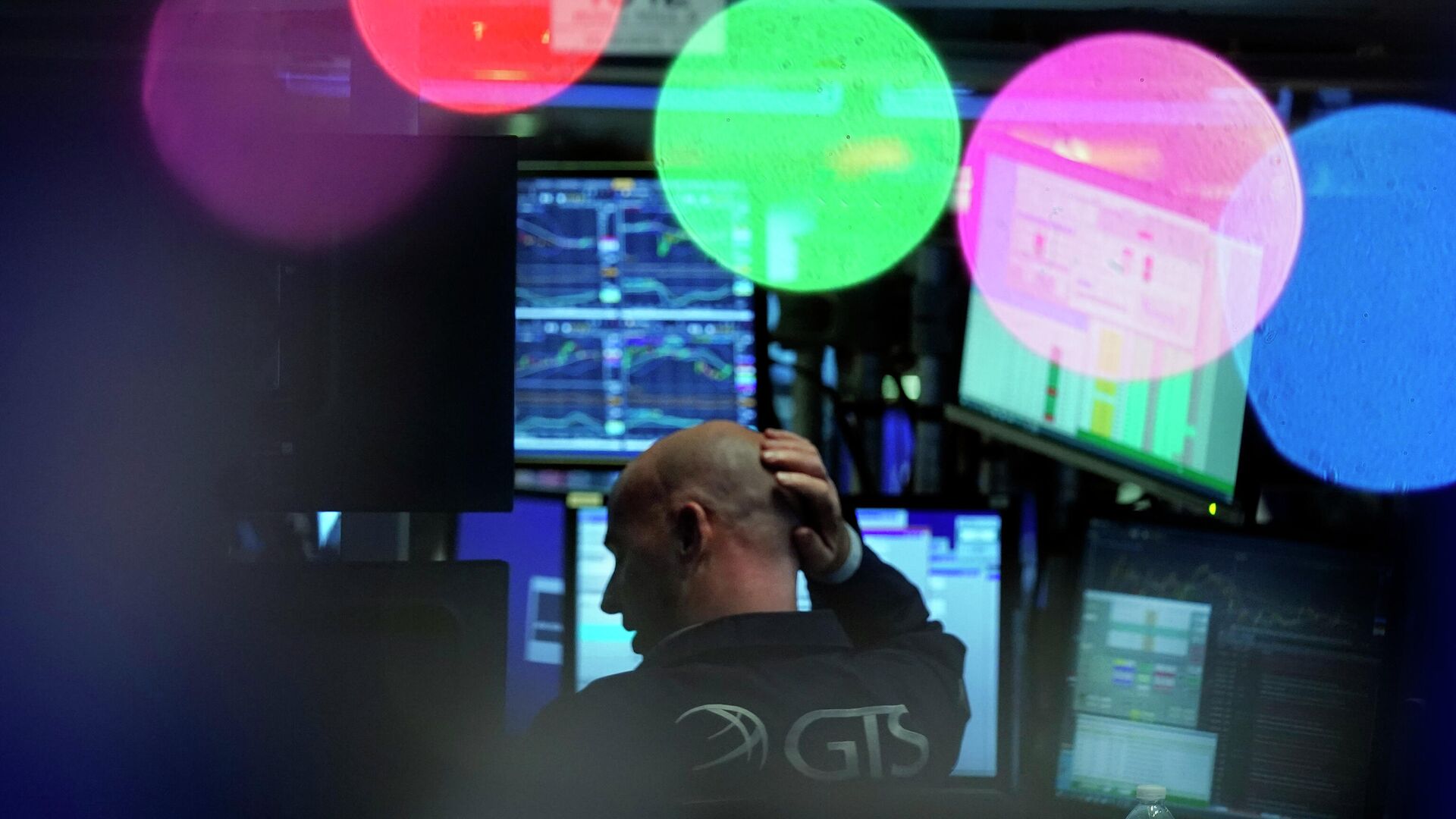https://sputnikglobe.com/20220523/ukraine-war-full-effect-not-felt-yet-but-super-hard-us-interest-rates-possible---bostic-1095725601.html
Ukraine War Full Effect Not Felt Yet But 'Super Hard' US Interest Rates Possible - Bostic
Ukraine War Full Effect Not Felt Yet But 'Super Hard' US Interest Rates Possible - Bostic
Sputnik International
WASHINGTON (Sputnik) - The full impact of the Ukraine war on the global economy has not been felt yet and the US central bank might have to go "super hard" in... 23.05.2022, Sputnik International
2022-05-23T20:13+0000
2022-05-23T20:13+0000
2022-08-06T13:36+0000
us federal reserve
interest rate
ukraine crisis
us economy
inflation
https://cdn1.img.sputnikglobe.com/img/07e5/0b/1d/1091096150_0:320:3072:2048_1920x0_80_0_0_bbdba5d54917908e2e9aa367928be09c.jpg
“The full effect of [the] Ukraine war has not been felt yet, the upward price pressure for industrial inputs is still to come,” Bostic said at a livestreamed event. “We have a little more to go raising interest rates in the next several months. It may be the case that [the] Fed needs to go super hard on rate hikes, but that is not the baseline.”The Federal Reserve has said it will continue to raise interest rates and even slow the US economy if necessary to bring inflation down from 40-year highs.After contracting 3.5% in 2020 from disruptions forced by COVID-19 pandemic measures, the US economy expanded by 5.7% in 2021, growing at the fastest pace since 1982. But inflation has grown just as fast as the economy and faster, with some price gauges showing growth of as much as 8.5% on the year.Since this year began, US growth has been on a weaker trajectory, coming in at a negative 1.4% in the first quarter as the Russia-Ukraine crisis led to runaway inflation in food and energy prices.If the economy does not return to positive territory in the second quarter, the United States will technically be in recession going by the definition that it takes just two negative quarters in a row to make up a recession.The Federal Reserve’s tolerance for inflation is 2% per year. After leaving rates at nearly zero for two years during the pandemic, the US central bank raised them in March by a quarter point and by another half point in May.The Federal Reserve says it will likely do another two half-point hikes in June and July, and assess their impact on the economy before proceeding. Some policy-makers at the central bank have, however, suggested a three-quarter point hike in June to bring inflation down faster.
Sputnik International
feedback@sputniknews.com
+74956456601
MIA „Rossiya Segodnya“
2022
Sputnik International
feedback@sputniknews.com
+74956456601
MIA „Rossiya Segodnya“
News
en_EN
Sputnik International
feedback@sputniknews.com
+74956456601
MIA „Rossiya Segodnya“
Sputnik International
feedback@sputniknews.com
+74956456601
MIA „Rossiya Segodnya“
us federal reserve, interest rate, ukraine crisis, us economy, inflation
us federal reserve, interest rate, ukraine crisis, us economy, inflation
Ukraine War Full Effect Not Felt Yet But 'Super Hard' US Interest Rates Possible - Bostic
20:13 GMT 23.05.2022 (Updated: 13:36 GMT 06.08.2022) WASHINGTON (Sputnik) - The full impact of the Ukraine war on the global economy has not been felt yet and the US central bank might have to go "super hard" in raising interest rates due to inflation heightened by the conflict, Federal Reserve Bank of Atlanta President Ralph Bostic said on Monday.
“The full effect of [the] Ukraine war has not been felt yet, the upward price pressure for industrial inputs is still to come,” Bostic said at a livestreamed event. “We have a little more to go raising interest rates in the next several months. It may be the case that [the] Fed needs to go super hard on rate hikes, but that is not the baseline.”
The Federal Reserve has said it will continue to raise interest rates and even slow the US economy if necessary to bring inflation down from 40-year highs.
After contracting 3.5% in 2020 from disruptions forced by COVID-19 pandemic measures, the US economy expanded by 5.7% in 2021, growing at the fastest pace since 1982. But inflation has grown just as fast as the economy and faster, with some price gauges showing growth of as much as 8.5% on the year.
Since this year began, US growth has been on a weaker trajectory, coming in at a negative 1.4% in the first quarter as the Russia-Ukraine crisis led to runaway inflation in food and energy prices.
If the economy does not return to positive territory in the second quarter, the United States will technically be in recession going by the definition that it takes just two negative quarters in a row to make up a recession.
The Federal Reserve’s tolerance for inflation is 2% per year. After leaving rates at nearly zero for two years during the pandemic, the US central bank raised them in March by a quarter point and by another half point in May.
The Federal Reserve says it will likely do another two half-point hikes in June and July, and assess their impact on the economy before proceeding. Some policy-makers at the central bank have, however, suggested a three-quarter point hike in June to bring inflation down faster.

